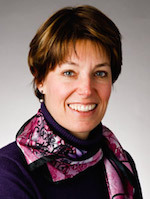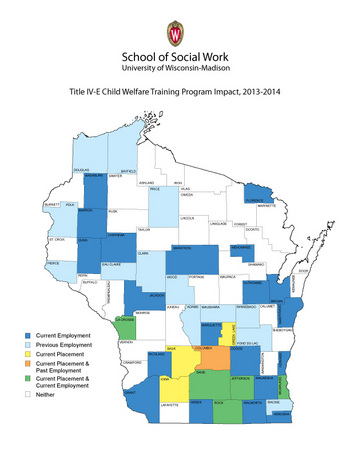UW child welfare program keeps social workers in Wisconsin
A social work program at the University of Wisconsin–Madison boasts a nearly 100 percent placement rate for graduates, and the majority of those jobs are in Wisconsin.
The Public Child Welfare Training Program educates graduate- and undergraduate-level social work students to prepare them for employment as practitioners and leaders in public child welfare. The program aims to specifically strengthen Wisconsin’s public child welfare workforce, which is critical to protecting children from abuse and neglect.

Ellen Smith
“One of the biggest reasons people leave the child welfare workforce is that it isn’t what they thought it would be,” says program coordinator Ellen Smith. “Our goal is to keep and sustain people in child welfare by adequately preparing them for the work.”
An estimated 98 percent of students in the program have been able to find child welfare positions, and most graduates have a job just 28 days after graduation.
The program has 27 students currently enrolled; 165 students have graduated from it since 1999. Students who are admitted to the state-run, federally funded program receive a monthly stipend, tuition and fees, as well as funds for books, supplies and transportation. In return, they must work in Wisconsin in the area of public child welfare for the amount of time they received funding.
For Sonja Kania, the program was critical to her post-graduation success in the child welfare workforce. “I went into social work as a leap of faith,” Kania says. “I didn’t know, 100 percent, what I was getting into.” Eight years later, Kania is now the family services director at a human services agency in Milwaukee.
Kania originally planned to move back to her native Minnesota after finishing the program, but she has stayed in Wisconsin to continue protecting children who are at risk of abuse. She’s stayed at the same agency where she started when she first graduated from the program almost 10 years ago.
“The program and the training and my connections at Madison transformed the direction of my career,” Kania says. “[It] helped give me confidence in the work I’m doing.”
Danielle Brey, a recent graduate of the program, first became interested in social work policy during a field placement with the child protective services in Rock County, and she credits the UW–Madison program with shaping her view of social work on the whole.
“With one policy, I can change how an entire system works,” Brey says. “I want to be continually improving the system, whether that’s locally, in the state or nationally.”
Brey graduated in May, and she secured a job with the Wisconsin Department of Children and Families before graduation. “The program really helped me narrow what I’m doing and where I’m going,” Brey says. “I still have so much to learn, but I feel prepared for this.”
That kind of drive is what Smith hopes the child welfare program will continue to foster. “Our students are future leaders,” Smith says. “They truly make an impact on our state.”
—Alissa Karnaky
Subscribe to Wisconsin Ideas
Want more stories of the Wisconsin Idea in action? Sign-up for our monthly e-newsletter highlighting how Badgers are taking their education and research beyond the boundaries of the classroom to improve lives.





